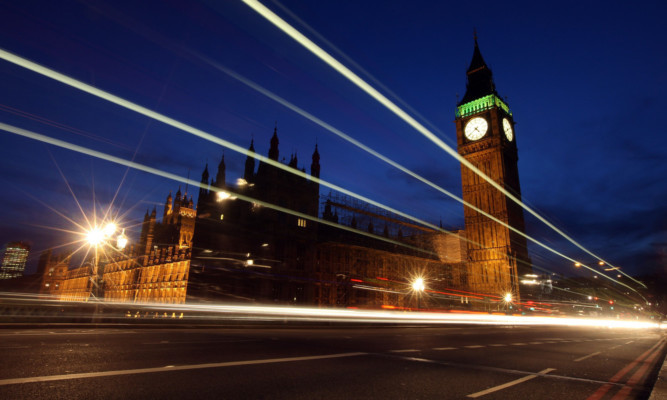
Pity the people charged with making this week’s Democracy Day a big deal.
Politics at the start of 2015, an election year, has largely been met with a cynical sigh.
Scotland retains a residual charge left over from last year’s electrifying referendum campaign and Jim Murphy’s antics are keeping the body politic there twitching.
But at Westminster many have been caught off guard only by the conspicuous lack of political action.
Labour and the Conservatives have fired the starting gun on their election campaigns.
Trouble is, rather than racing out of the blocks, they appear to have run into each other, squabbling over statistics and collapsing the political debate to the standard of: “he said, she said”.
It’s a pity because Democracy Day is worth celebrating.
Tuesday marks 750 years since Simon de Montford first convened a parliament and democracy took root in the UK.
Of course there was no UK in those days and at the time Scotland was largely on the side of Simon de Montford’s enemy, King Henry.
And though the Scots had convened an early assemble 30 years previously, that gathering in 1265 was the earliest antecedent of the current Westminster parliament.
Not unreasonably, some people want to make a song and dance about this.
The BBC will be awash with programmes on Tuesday marking the anniversary and parliament is supporting a year-long series of events and exhibitions to engage and educate people about its work.
Throw in the fact that this year is also the 800th anniversary of King John signing Magna Carta.
It was an English document, but contained clauses that applied to Scotland alongside the bits that have underpinned almost all democracies since, by setting out citizens’ basic freedoms.
All of which makes it clear that if the referendum year of 2014 threw the constitution into flux, 2015 provides an opportunity to celebrate the principles that underpin it.
It’s worth remembering that what drives our democracy and parliament is good intentions, but, in practice, it is far from perfect.
That was highlighted last week in an SNP-secured debate on reform of the House of Lords.
Perth MP and former pop star Pete Wishart couldn’t resist a lyric in his opening remarks dubbing the upper chamber “bloated, ermine-coated and never voted”.
He then went on to describe the House of Lords as being a “gold-plated, red-upholstered Narnia” before calling for it to be “ripped up”.
Wishart’s keen to point out Labour teamed up with the Tories during the independence debate but by campaigning to rip up Narnia he’s put himself in league with the White Witch. Look out for SNP manifesto promises to pay benefits in Turkish delight and clamp down on the number of fauns flooding into the country.
The House of Lords is the bit of the current parliament closest to its historical counterparts, of course.
Just as some of Simon de Montford’s members would have qualified on account of an accident of birth, so there are still nearly 100 peers who are there simply because of who their father was.
But it’s come to something that, after centuries of trying to overturn the system so that everyone can share the franchise, we take the chance to vote so much for granted that last week an MP felt it necessary to propose a bill making it compulsory.
Labour’s David Winnick has been around parliament so long he probably remembers de Montford.
Like his long political career Winnick’s Voting (Civic Obligation) Bill will go nowhere, there won’t be time to take it forward as parliament winds down, with just weeks until it is dissolved.
But it’s not the merit of the proposal that really matters. It’s the fact that it’s being discussed at all.
Just 750 years after democracy emerged in the UK, politicians are talking about enforcing it.
That’s something politicians and the people they represent should reflect upon on Democracy Day.

Enjoy the convenience of having The Sunday Post delivered as a digital ePaper straight to your smartphone, tablet or computer.
Subscribe for only £5.49 a month and enjoy all the benefits of the printed paper as a digital replica.
Subscribe